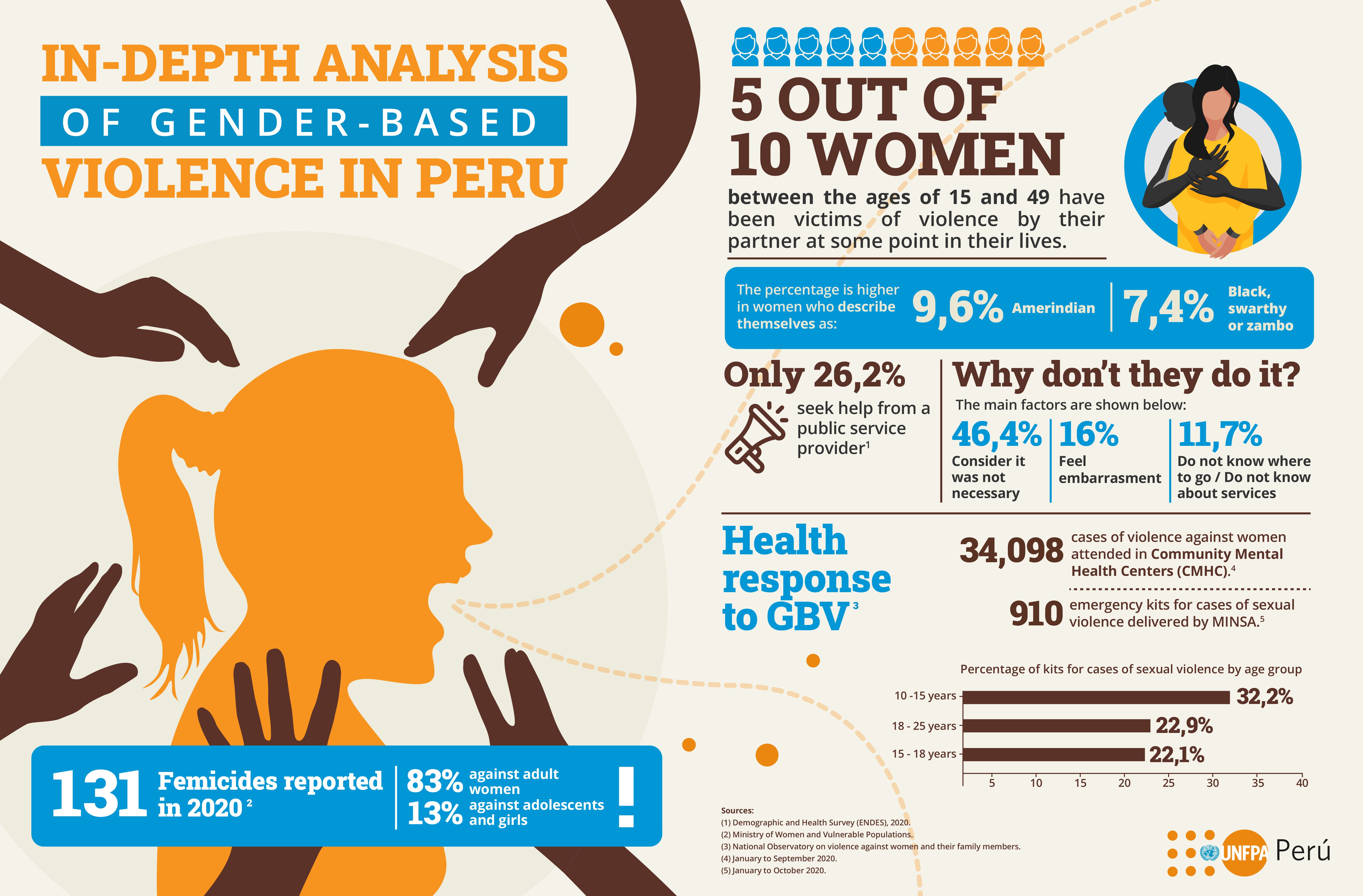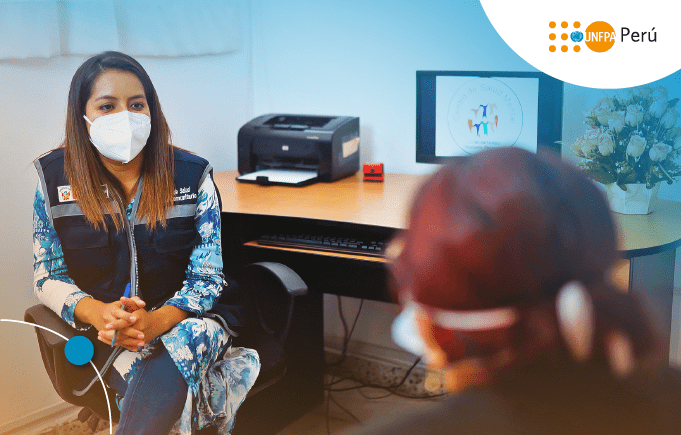In Peru, five out of ten women between the ages of 15 and 49 have been victims of violence by their partner at some point in their lives, according to the Demographic and Health Survey (ENDES) 2020. However, less than 30% of women who experience violence seek help from a public institution/service provider.
The most common mentioned reasons for not seeking help were: “it was not necessary” (46.4 %); “they felt embarrassment” (16 %) and “they did not know where to go or did not know about services” (11,7 %).
In this respect, it is necessary to strengthen public services, including health services, provided to women, adolescents and girls who experience violence.
In addition, access to welfare, justice, protection and the recuperation of women´s right to a life free of violence, their sexual and reproductive health and mental health needs to be strengthened.
As for essential health services, the National Observatory on violence against women and their family members declares that MINSA's Community Mental Health Centers (CMHC) responded to 34,098 cases of violence against women between January and September 2020. The regions with the highest number of cases of violence against women were recorded by CMHC ´s in Piura with 10,741 cases, Lima with 4,938 cases and Arequipa with 5,951 cases.
Likewise, between January and October 2020, MINSA delivered 910 emergency kits to respond to cases of sexual violence. The region that delivered the highest number of emergency kits was Arequipa (233), followed by Metropolitan Lima (154), and Lambayeque (48). According to the records of MINSA the age group that received the most emergency kits is 10 to 15 year old’s (33.2%), followed by 18 to 25 year old’s (22.9%), and 15 to 18 year old’s (22.1%).
UNFPA and MINSA have joined efforts to ensure a quality health response to gender-based violence (GBV). Since the beginning of the pandemic, the joint work has allowed the approval of a set of protocols for the case management of violence in emergency contexts, the capacity building of personnel to ensure quality care for victims and the promotion of health sector alignment with other relevant sectors, such as those providing socio-legal services taking, as part of the public response to gender-based violence to ensure comprehensive care for survivors.
In this regard, the approval of the mental health and COVID-19 guidelines, the clinical management guide of rape and the psychological parameters guidelines, as well as the training of 11,000 health care providers on supporting the mental health and sexual and reproductive health for GBV survivors, are some of the results of the coordinated work between UNFPA and MINSA . The aim has been to ensure quality care for survivors of violence that access health care centers, while focusing on the rights and needs of the survivors.
To ensure equal and sustainable development, no woman should be left behind. For this purpose, it is essential to ensure that the response to COVID-19 includes an effective implementation of the prevention and response to gender-based violence through the provision of health services. Zero gender-based violence by 2030.



